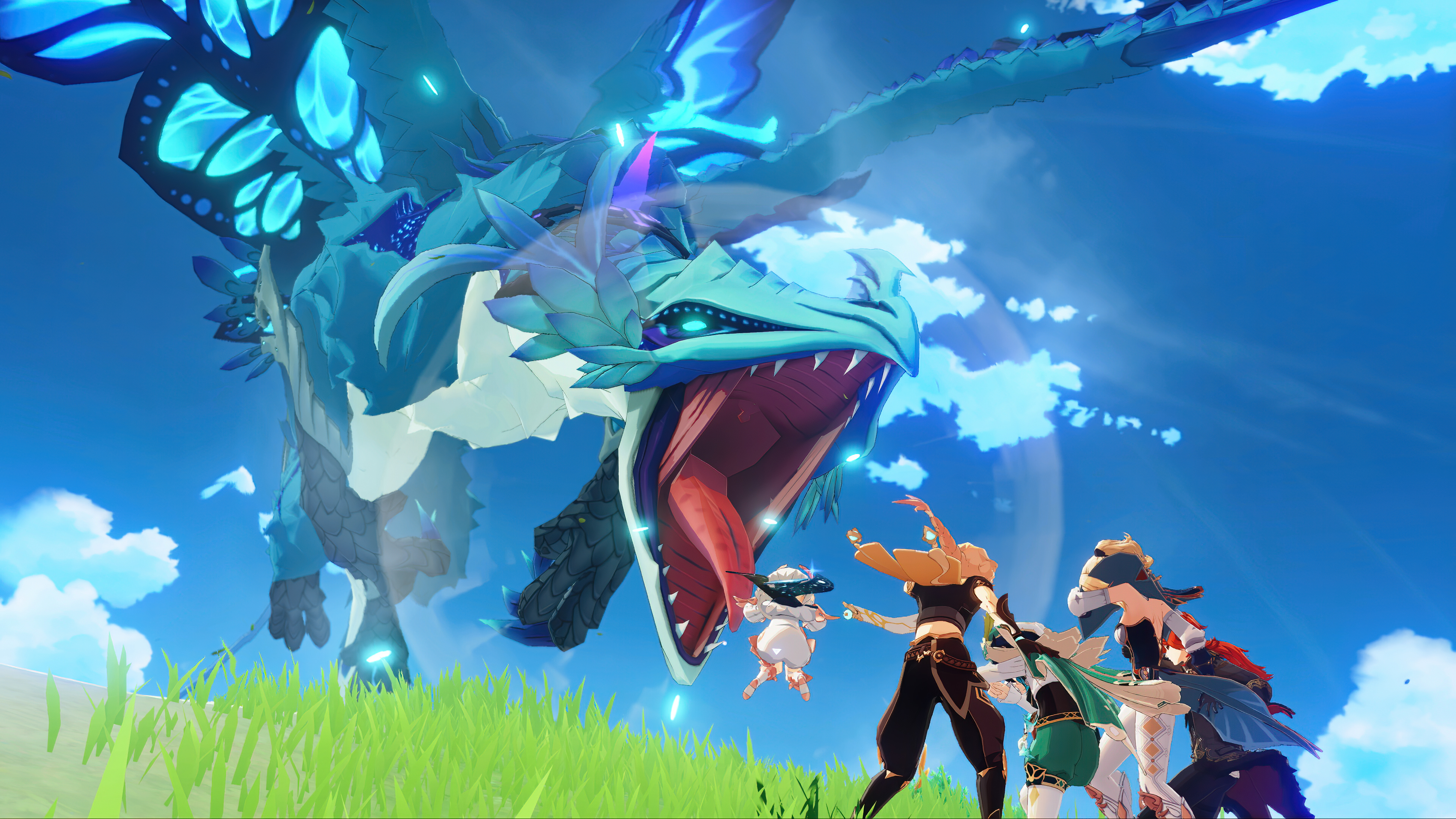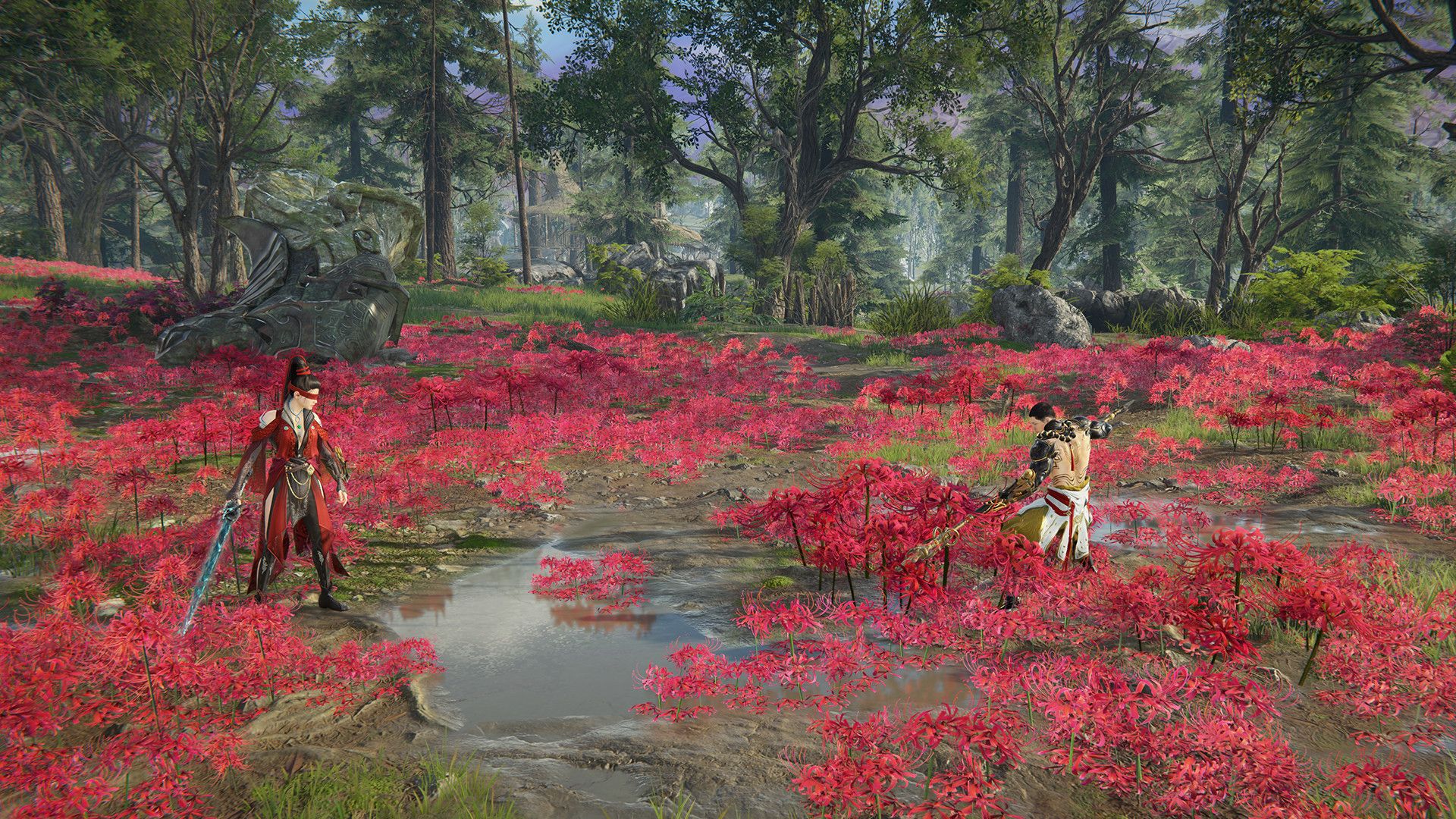Why aren't we all playing Chinese games?
Lost in translation

It’s hard not to notice the figures coming out of China. In 2021, the games industry there reported a total revenue of 296.5 billion yuan ($44.6 billion), putting it ahead of the USA. Leading light Tencent dwarfs Sony, Nintendo, Microsoft and EA, reporting a revenue of $32.94 billion last year. However, this colossal income has yet to transform itself into a glut of new projects. With all this money floating around, why aren’t our libraries filling up with irresistible, Chinese-made games?
One simple reason is that investment and acquisitions seem to be the main focus for Tencent right now. While the company has said it wants the majority of its audience to be international, it’s evidently not too concerned whether that audience is playing games it has developed itself. Tencent has yet to create its own Mario, Uncharted or Gran Turismo, but has had no trouble in acquiring globally famous IPs – such as League of Legends and Valorant through the company’s purchase of Riot Games in 2011. Fortnite’s developer Epic Games is also 40% owned by Tencent, and last year alone Tencent invested in more than 100 video game related companies, with around 30% of these investments outside of China.

Of course, Tencent’s preferences haven’t stopped other companies with homegrown games from dipping their feet in the global market. Genshin Impact hit 60 million monthly players for the first time in February 2022, a remarkable feat for an 18 month old game.
The importance of its success as a confidence boost to Chinese devs cannot be overstated. And while not reaching the lofty heights of Genshin Impact, Naraka: Bladepoint and FIST: Forged In Shadow Torch have both received positive reception abroad – as can be seen in reviews from critics and Steam users alike. There is also a vibrant indie scene that often goes under the radar outside of China, and probably deserves more attention. So clearly, there are success stories for Chinese developers making their own games. But why do so few travel well?
Local lingo
For any game developed in China, English language localisation and marketing are important issues. Localisation can make or break a game, and it can be argued that the fantastic quality of English language localisation in Genshin Impact is a major reason for its success. Yet there are very few native English speakers working in the games industry in China: many games companies constantly have openings for these roles, and it can often be a struggle to fill them.
The pandemic hasn’t helped: visa restrictions have tightened, and entering China is expensive and stressful (a fact which also harms Chinese devs, as they’re unable to visit games conventions abroad to market their games due to the difficulties in getting back into China). Shanghai, which has the “highest number of foreign talents in China”, and is a major hub for games companies, only has a total of 164,000 foreign nationals in a population of 28 million. For contrast, London has a far smaller population but over 3.5 million foreign nationals.
This lack of an English speaking labor force leads to outsourced localisation for many smaller Chinese developers and publishers. Communication is not easy, and so small discrepancies and uncertainties in the translation are less likely to be solved to the highest standard. And for some studios, even outsourcing is a financial risk. If an indie dev doesn’t picture success in the global market, localisation into different languages may seem a waste of money with such a large domestic market available.
Get daily insight, inspiration and deals in your inbox
Sign up for breaking news, reviews, opinion, top tech deals, and more.

Therefore, it is not uncommon for indie devs to release their games on Steam only in Simplified Chinese, without an English translation. This is a relatively safe method, as they can first gauge the popularity of the game with Chinese speaking gamers, and if successful, then use sales revenue to help fund outsourcing of localisation into different languages.
One prime example is Tale of Immortal, which saw huge success upon release in Simplified Chinese - enough to take the number two spot in Steam’s Top Sellers List. English localisation is now available, but one can’t help but feel this was an opportunity missed, as a period of huge exposure to non-Chinese speaking gamers who wouldn’t normally come across this game couldn’t be capitalized on effectively. It is worth noting, however, that Tale of Immortal sits in the ‘Cultivation’ genre that is very much steeped in Chinese culture – so it’s understandable that its devs did not foresee instant global success.
King Wukong
Marketing, while not impacting the final gaming experience like localisation, also has a huge impact on the visibility of a game. In this sense, Chinese indie devs face many of the same issues, as language barriers make it difficult for them to produce high quality marketing content themselves.
Social media presence is vital nowadays, and the increasingly informal styles of marketing used on Western sites like Twitter and Discord will be mostly unfamiliar to indie devs. This is entirely understandable – as not only are they non-native speakers, but China has its own set of social media channels too. This makes self-publishing on the global market much more difficult for indie devs in China than in other parts of the world, with the cost barrier increased once again if they choose to go with a publisher instead.
However, there is hope. There are plenty of promising projects in development in China. The standout in terms of global hype has to be Black Myth: Wukong, an upcoming action RPG slated for release in 2023 that, if the final product is able to live up to its trailers, will no doubt be a hugely popular game all over the world. Admittedly that is a big “if” – and the fate of Cyberpunk 2077 will no doubt be something that Black Myth: Wukong’s developers are keen to avoid.
Whatever that particular game’s destiny, perhaps it is simply a matter of time – and in a few years we really will all be playing Chinese developed games. But due to the cost barrier of localisation and marketing, a huge proportion of interesting indie projects will never truly leave the country – and we’ll never feel their impact.